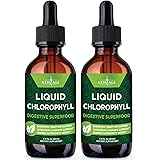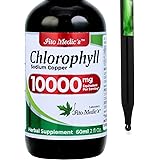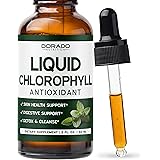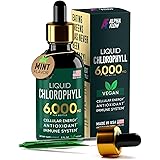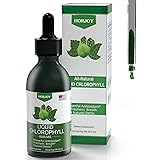The compelling video above offers a poignant glimpse into the critical work of EMS personnel as they respond to a challenging call. It highlights the serious dangers involved when someone attempts to manage alcohol withdrawal at home without professional medical supervision. The scene involving Holly and Nick assisting a 41-year-old man, who had previously suffered a stroke at 31, underscores just how perilous self-detoxification can be.
For many individuals struggling with alcohol dependence, the idea of stopping drinking can be overwhelming. The patient’s story, revealing a decade-long battle and a prior stroke linked to a detox attempt, is a stark reminder of the body’s profound reliance on alcohol. This dependency is not merely psychological; it is a deep-seated physical condition that can lead to severe, even fatal, health complications.
The Hidden Dangers of Self-Detoxification from Alcohol
When alcohol consumption is stopped suddenly after a period of heavy or prolonged drinking, the body’s systems can go into shock. This is often referred to as alcohol withdrawal syndrome. The initial symptoms might seem mild, but they can quickly escalate into life-threatening conditions.
The patient in the video described feeling ill, and his vital signs, like a “heart rate through the roof,” clearly indicated his body was under extreme stress. This type of reaction is common and can be an early sign of more severe issues developing. Trying to manage these intense physiological responses alone is a significant risk.
Understanding Alcohol Withdrawal Symptoms
The body becomes accustomed to the presence of alcohol, using it to regulate various functions. When alcohol is removed, this balance is dramatically disrupted, leading to a range of symptoms. These can include:
- Tremors (shaking)
- Sweating and nausea
- Headaches and insomnia
- Anxiety, agitation, and irritability
- Hallucinations (visual, auditory, or tactile)
- Seizures, which can be life-threatening
- Delirium tremens (DTs), a severe form of withdrawal involving confusion, rapid heart rate, high blood pressure, and fever
These symptoms are not simply uncomfortable; they indicate a dangerous level of physical distress. The risk of seizures and DTs makes medical supervision not just advisable, but often absolutely necessary for safe withdrawal.
Alcohol Dependence: More Than a Habit
As Holly wisely noted in the video, “Your body becomes just as dependent on alcohol as mine is dependent on water.” This analogy effectively illustrates the depth of physical addiction. Over time, the brain and central nervous system adapt to constant alcohol exposure.
Neurotransmitters, which are the chemical messengers in the brain, are profoundly affected by alcohol. When alcohol is suddenly removed, these systems become overactive, causing the body to react intensely. This physiological dependency explains why quitting “cold turkey” can be so incredibly dangerous and difficult for individuals who have developed a severe alcohol use disorder.
The “Catch-22” of Alcohol Addiction
The unfortunate reality for many is what Holly described as a “catch-22”: chronic alcohol use is detrimental to health, yet the process of stopping it can also be life-threatening without proper care. This is particularly true for individuals with underlying health conditions, such as a history of stroke, as seen with the patient.
A previous stroke already indicates a vulnerability in the patient’s cardiovascular and neurological systems. The severe stress placed on the heart and brain during unsupervised alcohol withdrawal significantly elevates the risk of another stroke, heart attack, or other catastrophic events. The body’s systems are pushed to their limits, which can have devastating consequences.
Why Medical Detoxification is Essential
Given the severe risks associated with alcohol withdrawal, professional medical detoxification is not just recommended, but often critical. A medical detox program provides a safe, supervised environment where withdrawal symptoms can be managed effectively and humanely.
During medical detox, patients are closely monitored by healthcare professionals, including doctors and nurses. Medications are frequently administered to alleviate withdrawal symptoms, reduce cravings, and prevent dangerous complications like seizures. These medications, such as benzodiazepines, help to calm the overactive nervous system, making the process much safer and more tolerable.
- **Safety:** A medical team is on hand to intervene immediately if complications arise.
- **Comfort:** Medications significantly reduce the discomfort and distress associated with withdrawal.
- **Support:** A supportive environment is provided, which can be crucial for an individual’s mental state during a challenging time.
- **Preparation for Recovery:** Medical detox is often the first step in a longer journey of recovery, connecting individuals to subsequent treatment and support systems.
For someone with a history of medical issues, like the stroke survivor in the video, medical supervision during alcohol detox is absolutely non-negotiable. The specific risks associated with their health profile can be identified and mitigated, ensuring the safest possible path to recovery.
Taking the First Step Towards Long-Term Recovery
The patient’s journey, enduring a decade of struggle and facing difficulties in finding assistance, highlights a common reality. As Holly stated, “You have to want it and you have to go get it.” This sentiment acknowledges the immense personal will required, but also the need for accessible support.
Seeking help for alcohol addiction is a brave and pivotal decision. It can feel daunting to check oneself into a facility, but this step is often the gateway to a healthier, more stable life. Resources are available, and connecting with a healthcare professional is always the recommended starting point. They can provide guidance on safe alcohol withdrawal options and pathways to long-term recovery, ensuring that the process is managed effectively and compassionately.



